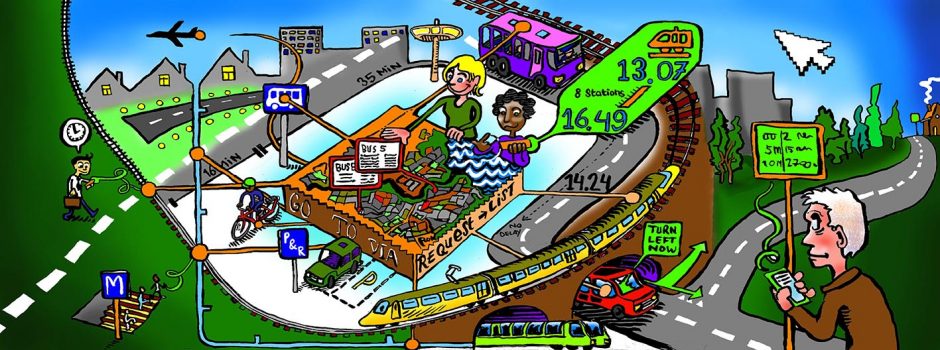Can a new type of travel planner, based on more real-time and multi-modal data, be an effective policy instrument? Many governments across the globe currently seem to affirm, triggered by the tremendous growth in data availability, but virtually all of them are still figuring out how. Large investments are made and many innovations are under way. The current variety of ways to organize and design for new travel planning provides a rich and urgent opportunity for us to study and improve these innovation processes from a governance point of view.
We are researchers at Delft University of Technology with a mixed scientific background of public management, economics, human geography and systems engineering. In past years, we have participated in the PETRA-project, one of a number of similar EU-funded projects, with the aim to develop a data platform for multi-modal real-time travel planning aimed at collective goals. PETRA stands for PErsonal TRansport Advisor. This document is our spin-off: a handbook of governance for all who wish to contribute to the success of these projects and their collective goals.
This handbook presents, based on multiple analyses of pitfalls, helpful concepts and good practices for governmental agencies that are involved in developing data platform for multi-modal real-time travel planning. The content is based on participatory observations in three cities within the PETRA-projects, as well as 12 case studies of data platforms in the world. All studies focused on the organizational or governance side of the platforms, including their development, their procedures and their implementation. Although the handbook is targeted at travel planning platforms, it will be useful to any government involved in projects that includes the development of data platforms for public policy that requires the cooperation of multiple public and private parties.
To start, we answer the following questions:
